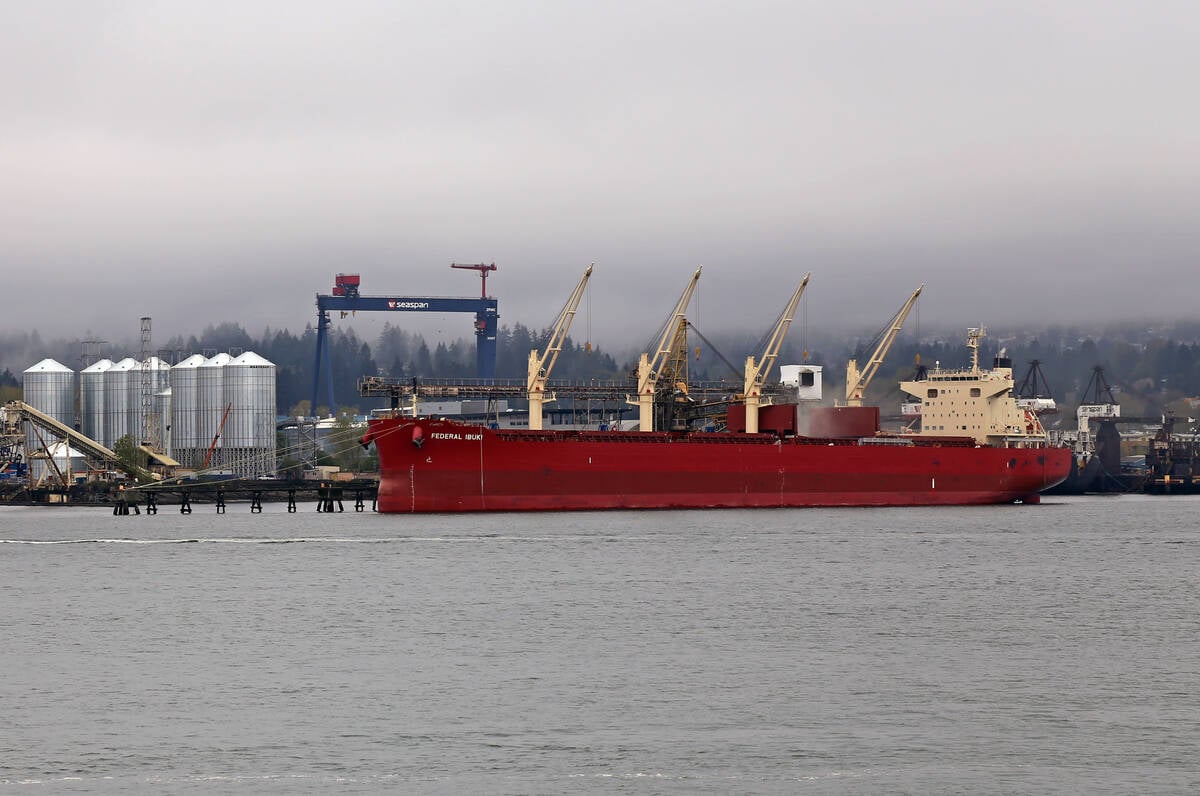Farmers are among the highest paid people in Cuba. That doesn’t mean farmers are rich. Instead it reveals deep problems in the nation’s economy.
The country’s economic development has been slowed by an American bill, the Helms-Burton law, designed to isolate Cuba from the rest of the world, said Oxfam Canada worker Minor Sinclair.
“Helms-Burton has made it nearly impossible to get the foreign goods that Cubans need to make the transition from their relationship with the Soviets to a relationship with the rest of the world,” said Sinclair, who has worked in Cuba.
Read Also

Vancouver port says it has improved efficiency
Grain movement has been strong at the Port of Vancouver due in part to a new centralized scheduling system.
Recent changes allow farmers to sell surplus production, form co-operatives and privately hold land outside the collective system.
Farmers, at least, are always assured of having enough to eat, which is more than can be said for the average Cuban, said Sinclair.
Fertilizers and other crop inputs have almost disappeared due to restricted trade. The country has been forced to adapt by moving into alternative agricultural practices, including organics.
“Cuba has become the largest organic test zone in the world. It has been hard but they are making dramatic improvements,” he said.
Loss of trading partners
Crop production dropped dramatically as the former Soviet Union, Cuba’s main trading partner, collapsed. As well, U.S.-based suppliers have dried up.
“Milk powder costs $1,200 a tonne to import. Soy powder is more affordable at $300 a tonne but if they grow and produce their own they can get soy powder for $150. The problem comes when we realize that 80 to 90 percent of the certified soy seed available in the world is from U.S. breeding and cannot be sold to Cuba because of Helms-Burton,” said Sinclair.
Oxfam is working with female farmers to create a soybean project in Las Palmas, using Brazilian seed stocks. Other projects include dam building for irrigation and farm co-operatives development.
“Canada is the most respected foreign power in Cuba these days. They appreciate that we would stand up to the U.S. when our annual trade with Cuba is equivalent to just one day’s trade with the States,” said Sinclair.
Helms-Burton isolates Cuba by prohibiting executives of companies with Cuban enterprises that use former American assets and property nationalized by Cuba in 1959 from entering the U.S.
A provision of the act that would allow American companies to sue companies doing business in Cuba using assets confiscated in 1959 has not yet been enacted by U.S. president Bill Clinton.
Canada and the E.U. have repeatedly rejected the terms of Helms-Burton as illegal.
















